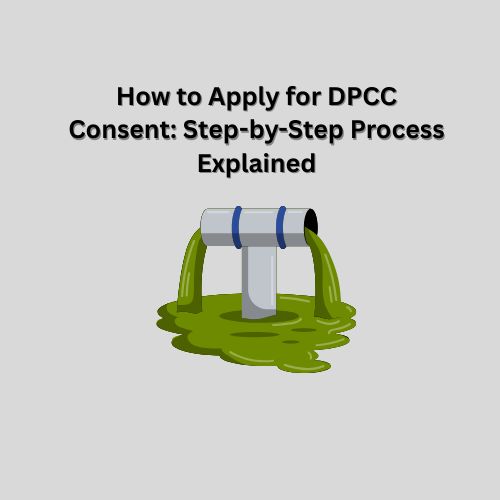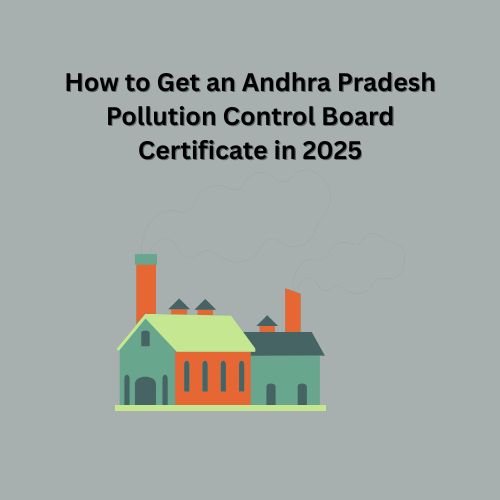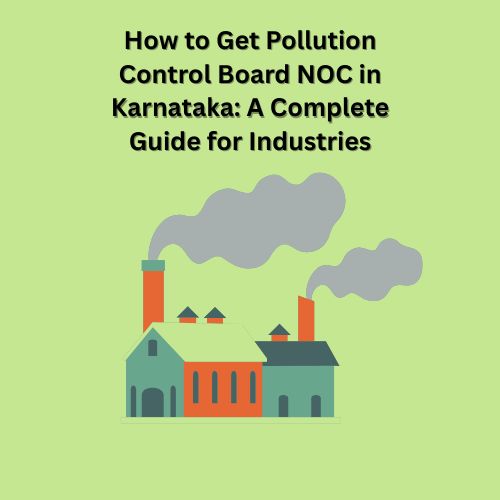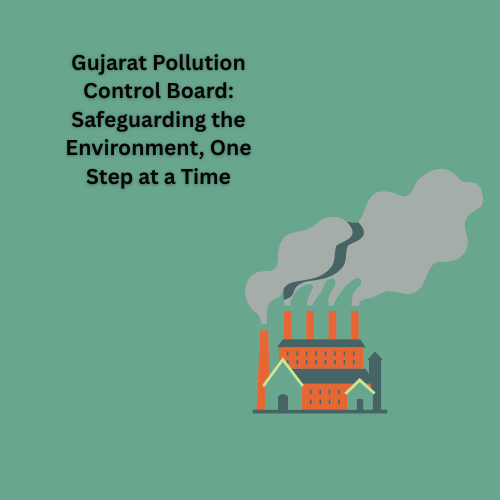GPCB Registration Made Easy: Step-by-Step Guide for 2025

Strong 8k brings an ultra-HD IPTV experience to your living room and your pocket.
Businesses must make every effort to comply with environmental regulations in an era of increased environmental consciousness and more stringent compliance standards, particularly in a state like Gujarat, which is renowned for its robust industrial base. Getting a GPCB license is one of the first and most crucial regulatory requirements if you intend to launch or grow a business in Gujarat.
The Gujarat Pollution Control Board (GPCB) is responsible for ensuring that industries operate in an environmentally responsible manner. This article offers a simplified, up-to-date, and actionable guide on how to apply for GPCB registration in 2025, whether you're a startup, MSME, or large manufacturing unit.
registration in 2025. What is GPCB registration?
GPCB registration is the legal process through which an industrial unit obtains permission to establish and operate while complying with environmental norms. The primary aim is to ensure that the unit’s emissions, waste, and effluent do not exceed permissible limits and that appropriate pollution control measures are in place.
There are typically three major types of consents issued by GPCB:
Consent to Establish (CTE)—Required before construction or setup begins.
Consent to Operate (CTO)—Required before commercial operations start.
Consolidated Consent and Authorisation (CCA)—A combined document that includes consent under the Water Act, Air Act, and Hazardous Waste Rules.
A valid GPCB certification ensures your business can operate without facing legal or environmental penalties.
Who Needs a GPCB License?
A wide range of industries require a GPCB license, especially those involved in:
Manufacturing (textiles, pharmaceuticals, chemicals, plastics, etc.)
Food processing
Engineering and fabrication
Dyeing and printing units
Waste management and recycling
Any unit discharging effluents or generating air emissions
Even small and medium-sized enterprises (SMEs) engaged in polluting activities must apply for the appropriate GPCB certification.
Benefits of GPCB Certification
Legal Compliance: Avoid fines, closure notices, and criminal liability.
Funding Approval: Many financial institutions require GPCB registration for sanctioning business loans.
Tender Eligibility: Public and private sector tenders often require environmental compliance.
Business Credibility: Boosts your image as an eco-conscious brand.
Documents Required for GPCB Registration
To apply for a GPCB license, you will need to prepare and upload several technical and business documents, including:
Ownership or lease documents of land/site
Project report or Detailed Project Description
Manufacturing process flow diagram
List of raw materials and chemicals used
Expected quantity of emissions, effluents, and waste
Pollution Control Measures (ETP, STP, APCM, etc.)
CA-certified capital investment certificate
Water and energy requirement details
PAN card and Aadhaar of the applicant
Site layout plan with plant, machinery, and pollution control equipment marked
For hazardous waste-generating units, additional documentation will be required under Hazardous Waste Management Rules.
Step-by-Step Guide to GPCB Registration (2025)
Step 1: Industry Categorization
The first step is determining the pollution category of your unit. GPCB classifies industries into:
Red (highly polluting)
Orange (moderately polluting)
Green (less polluting)
White (non-polluting—registration only, no consent required)
This classification affects the type of consent you need and the scrutiny level of your application.
Step 2: Online Registration on GPCB Portal
Visit the GPCB Online Consent Management System (OCMS)
Create an account using your email and mobile number
Fill in the details of your industry and project
Upload the required documents in PDF format
Choose the appropriate application type (CTE/CTO/CCA)
Pay the application fees based on industry size and category
Step 3: Department Review & Inspection
Once submitted, your application will be reviewed by GPCB officers. They may schedule a site inspection to verify the implementation of pollution control systems and ensure that your data is accurate.
Tip: Ensure your site is ready with installed pollution control equipment before inspection for CTO.
Step 4: Issuance of GPCB License
Upon successful verification, GPCB will issue the applicable consent—either CTE, CTO, or CCA. You can download the GPCB certification from the online portal once approved.
Validity & Renewal of GPCB Certification
Consent Type Validity Period
CTE 1–3 years
CTO/CCA (Red category) Up to 5 years
CTO/CCA (Orange/Green) Up to 10 years
Start the renewal process at least 60 days before the consent expiry to avoid operational delays.
Common Mistakes to Avoid
Submitting incorrect process flow diagrams or incomplete project reports
Delayed renewal applications
Ignoring hazardous waste authorization when applicable
Not updating GPCB in case of change in capacity, raw material, or ownership
Final Thoughts
Navigating the GPCB registration process may seem complex, but with the right guidance and timely execution, it’s completely manageable. Whether you're a new entrepreneur or an established industrialist, obtaining the necessary GPCB license is critical to running a lawful and environmentally responsible business in Gujarat.
Note: IndiBlogHub features both user-submitted and editorial content. We do not verify third-party contributions. Read our Disclaimer and Privacy Policyfor details.






